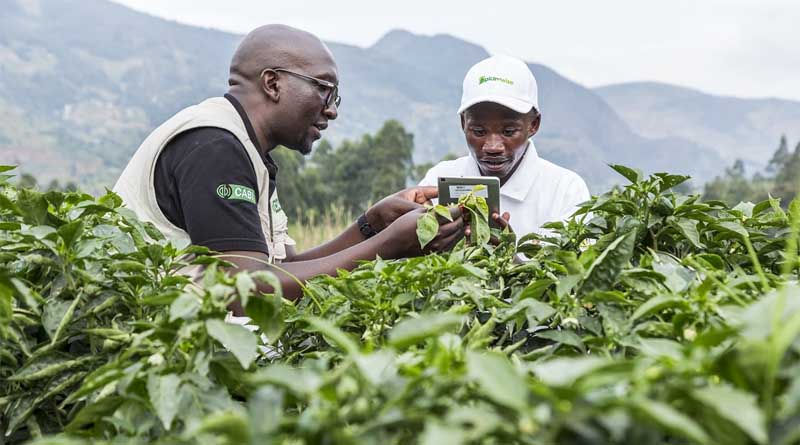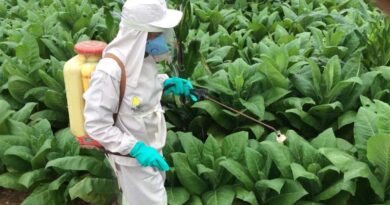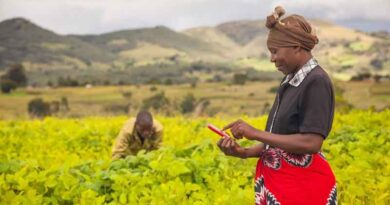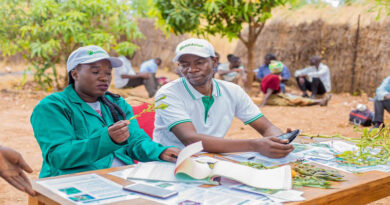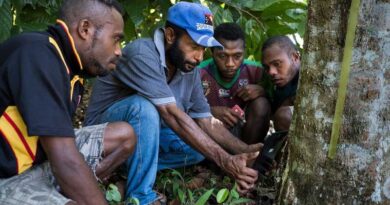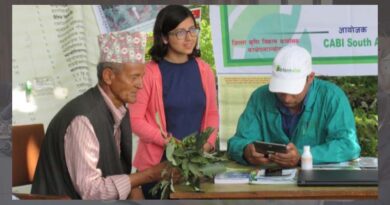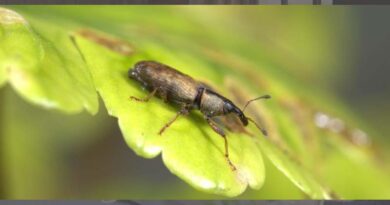Using mass media campaigns to promote safer pesticide use
27 April 2023, Africa: Giving farmers the tools they need to make pesticide use safer is vital. Mass media campaigns can help to share pesticide information with them. But the campaigns work best when they’re delivered using multiple forms of communication.
This is what a new CABI-led study has discovered. The research focused on information campaigns to reach smallholder farmers in Rwanda and Uganda. It concentrated on the effects of mass media campaigns on pesticide use. Published in the Journal of Rural Studies, the paper looks at different forms of communication.
CABI collaborated on the study with the Rwanda Agriculture and Animal Resources Department Board (RAB). The researchers found that pesticide use campaigns are critical. They improve farmers’ knowledge about pesticide risks and safety measures. They also boost the adoption of environmentally safer alternatives to synthetic pesticides. And they increase the use of personal protective equipment (PPE).
Delivering pesticide use information through multiple channels
But farmers are more likely to adopt new practices when the information is delivered via multiple channels. Dr Justice Tambo is the paper’s lead author. He talked about behaviour changes in pesticide use. And he noted that shifts are more pronounced when multiple information channels are used to reach farmers. These mass media channels include interactive radio, plant health rallies, mobile SMS and video screenings.
The evidence is clear in Rwanda, especially around Integrated Pest Management (IPM). Farmers are more likely to adopt multiple IPM practices when they receive information via radio, SMS and plant health rallies. In fact, they’re 50% more likely.
Smallholders in Rwanda are benefitting from pesticide safety advice. Those who received advice were 48% less likely to experience pesticide-related health symptoms. This is in comparison to farmers who didn’t receive safety information.
Shifting pesticide use to safer alternatives and PPE
Dr Tambo explained how mass media campaigns improve farmers’ knowledge of pesticide risks and safety precautions. The campaigns have not discouraged the use of synthetic pesticides. But they have made safer pesticide alternatives more likely to be adopted. This includes sustainable IPM.
Dr Tambo also noted a link between the campaigns and the increased use of protective equipment. This helps to reduce pesticide exposure. It’s helped to lower, for example, incidences of pesticide-related illnesses in Rwanda.
PlantwisePlus – promoting safer pesticide use
As part of PlantwisePlus, CABI aims to promote safe pesticide use among farm households. The programme helps farmers grow safer and higher quality food through sustainable approaches to crop production. CABI and partners implemented information campaigns in Rwanda and Uganda as part of this objective. They focused on major maize-producing areas.
In both countries, the channels included radio and mobile SMS. However, in Rwanda, the campaign also included plant health rallies. And in Uganda, they included video screenings. Radio was the most popular source of pesticide information in both countries, especially in Uganda. The use of local languages also helped with the message delivery.
Beyond information sharing
Dr Tambo explained how the “proliferation of ICTs” in developing countries helps to share information. They help to deliver knowledge to a wide range of farmers. This complements the efforts of traditional delivery of information face-to-face.
He pointed out that the findings highlight other actions needed to improve pesticide safety. For example, greater policy efforts can help to supply lower-risk pesticides, such as biopesticides. Governments should also promote PPE to reduce pesticide exposure risks.
These efforts could include improving the registration of biopesticide products. It could also include subsidies to spur biopesticide adoption.
The study contributes to the pesticide risk reduction goal of PlantwisePlus. This programme aims to reduce the reliance on high-risk farm inputs. Many inputs have adverse effects on human health and biodiversity. Additionally, the study benefits work towards meeting the demand for safer and locally produced food.
Also Read: Two Brothers Organic Farms raises 14.5 crore in Pre-series A with Akshay Kumar and Virender Sehwag
(For Latest Agriculture News & Updates, follow Krishak Jagat on Google News)

